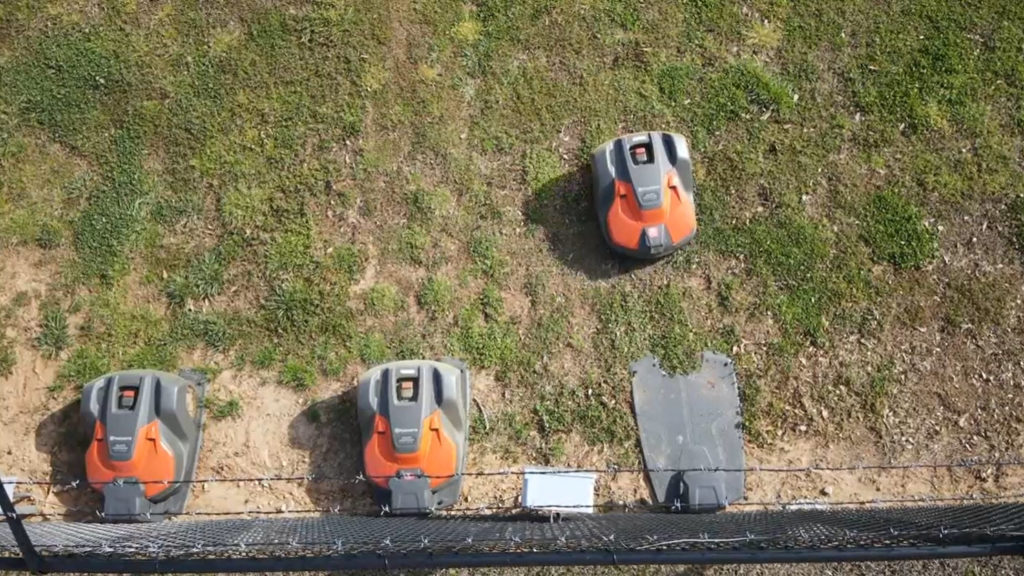Silent robotic lawnmowers might sound like something out of a futuristic novel, but the concept is becoming a reality for an electric cooperative in Georgia.
Jackson-based Central Georgia EMC is running 16 electric-powered, all-wheel-drive autonomous mowers for 11 hours a day Monday-Friday this summer to keep its 75-acre campus of rolling lawns, steep banks and uneven terrain looking sharp.
These robotic lawnmowers made by Husqvarna are equipped with a GPS system the co-op can program to cover specific territory. When their batteries run low, they park themselves on charging pads, consuming less than 1 kilowatt-hour before returning to the job.
CGEMC’s Ben Thomason, chief operating officer, and John Harkness, senior vice president of distribution services, began exploring robotic mowers last year when contractor bids for lawn maintenance were due.

“It went from an intriguing idea to a reality over several months,” said Harkness. “We had been struggling with lawn maintenance contracts and finding resources to submit bids. Every time we went through the bid process, the service costs were climbing, and the quality of work was falling.”
CGEMC expects its investment in electric robotic mowers to pay for itself in less than 24 months.
Using Husqvarna’s “automowers” is expected to cost about $41,400 for the first two years compared to traditional lawn service contracts forecast at nearly $83,000, Thomason said. The company estimates the robots will save the co-op about $220,000 in lawn maintenance over eight years, he said.
The manufacturer, which has an outlet in the co-op’s service area, offered a good price in exchange for public demonstrations of the mowers, and CGEMC is more than happy to tout the benefits of these electric devices, Thomason said.
In addition to their lack of noise and dust, the robotic mowers’ continuous lawn care has vanquished the co-op’s expensive fire ant infestations while reducing its carbon footprint from gasoline-fueled mowers, he said.
“Part of our business is selling kilowatt-hours,” Thomason said. “As folks transition from gasoline combustion to battery-powered devices, they’ve got to charge them.”
On Earth Day, the co-op invited members to see the robots at work and learn more about them. Many had already been enthralled by the technology. Sporting LED lighting, the mowers cut an enigmatic path across the co-op’s grounds at night.
“They catch your eye, and they are a little mesmerizing when you first see them,” said Harkness. “We’ve had folks pull over and stop and watch them. Then they call and ask us what we’re doing. It’s gaining interest in the community.”
Cathy Cash is a staff writer for NRECA.